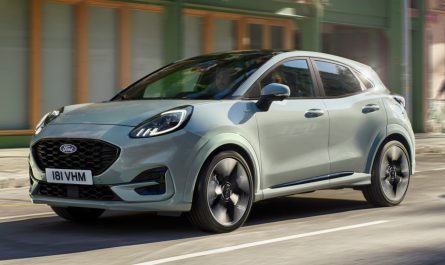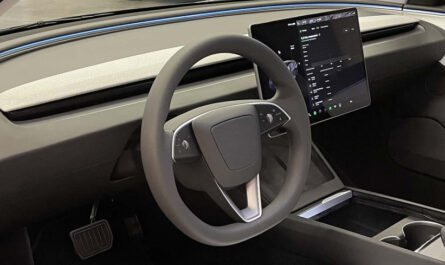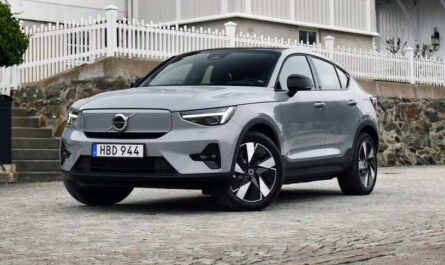Introduction to Electric and Gas Cars
The automotive world is at a crossroads, with a notable debate surrounding electric and gas cars. Historically, gasoline-powered vehicles have dominated the market; however, the landscape is shifting with the rapid rise in electric vehicles (EVs) popularity. The increasing awareness of environmental issues, coupled with technological advancements, has prompted consumers to explore the benefits of electric cars, which are perceived as more sustainable alternatives to traditional gas-powered vehicles.
Electric cars operate using energy stored in batteries, offering significant advantages such as lower operating costs, reduced maintenance, and fewer emissions than their gasoline counterparts. As climate change concerns continue escalating, many individuals and governments are prioritizing the transition towards electric mobility. EVs produce zero tailpipe emissions and promote cleaner air in urban environments, significantly contributing to better public health outcomes.
On the other hand, gas cars have long been favored for their range, refueling convenience, and established infrastructure. Many consumers remain skeptical about electric vehicles, particularly regarding battery life, charging availability, and overall performance. As technology advances, however, modern electric cars compete with gas-powered vehicles in range, speed, and durability. Manufacturers are investing heavily in EV technology, leading to higher efficiency and a growing availability of charging stations.
This blog post will delve into the intricacies of electric and gas cars, examining the global momentum behind electric vehicles and the enduring appeal of gas-powered options. By comparing the top models in each category, we aim to provide insights that will aid prospective car buyers in making informed decisions. The transition to sustainable transportation continues to gain traction, indicating that this debate is not just about preference but also a reflection of broader societal shifts.
Benefits of Electric Cars
Electric vehicles (EVs) have gained significant attention in recent years due to their numerous advantages over traditional gas-powered cars. One of the most compelling benefits of electric vehicles is their positive environmental impact. Using electricity instead of gasoline, EVs emit zero tailpipe emissions, significantly reducing air pollution and greenhouse gas emissions. This shift is crucial in addressing climate change and improving urban air quality.
Lower operating costs also present a strong argument in favor of electric vehicles. According to various studies, the cost of charging an electric car is generally considerably less than that of refueling a gasoline vehicle. With fewer moving parts, electric cars require less maintenance, leading to long-term savings for owners. Furthermore, many governments offer tax incentives and rebates for purchasing electric vehicles, making them an attractive financial option for many consumers.
Technological advancements have further enhanced the appeal of electric cars. The expansion of charging infrastructures, such as fast-charging stations, has made owning an EV more convenient than ever. Many cities invest in developing charging networks, ensuring electric vehicle owners have easy access to charging facilities. Battery life improvements have also been significant, with leading models offering ranges that compete with traditional cars. For instance, models like the Tesla Model 3 and the Ford Mustang Mach-E boast impressive ranges, making them practical choices for daily commutes and long-distance travel.

Electric cars present many benefits, from environmental advantages to lower operating costs and technological innovations. As the market evolves, these vehicles will likely play an increasingly vital role in personal transportation, contributing to a more sustainable future.
Benefits of Gas Cars
Gasoline-powered vehicles have long been a staple of the automotive market, offering several advantages that continue to appeal to consumers. One of the primary benefits of gas cars is their higher range compared to many electric vehicles. With a full fuel tank, drivers can typically cover several hundred miles without refueling, making gas cars particularly suitable for long-distance travel. This extended range alleviates concerns regarding battery life and charging stations, which can be significant factors for those considering an electric vehicle.
Another notable advantage is the well-established refueling infrastructure. Gas stations are available nationwide, allowing drivers to refuel their vehicles anytime. In contrast, charging stations for electric vehicles, while growing in number, are still not as ubiquitous, especially in rural or remote areas. This widespread availability of gasoline stations contributes to a sense of reliability for drivers who frequently travel outside urban centers.
Additionally, the speed of refueling is a significant benefit. Refilling a gas tank typically takes minutes, whereas charging an electric vehicle can require substantially longer, depending on the charger and battery size. This quick turnaround time ensures that drivers of gas cars can get back on the road without delays, a crucial factor for those with busy schedules or who are in transit.
From an economic perspective, gas cars often have lower upfront costs than their electric counterparts. The price of traditional gasoline vehicles tends to be less than that of electric cars, which can make them more accessible to a broader range of buyers. Popular models such as the Honda Accord and Toyota Camry exemplify this point, offering reliability, strong performance, and affordability in their class. Overall, the benefits of gasoline-powered vehicles make them a compelling choice for many consumers.
Performance Comparison: Electric vs Gas
When evaluating the performance of electric and gas vehicles, several metrics come into play, including acceleration, handling, and the overall driving experience. Each category presents distinct advantages that cater to different driving preferences and styles.
Starting with acceleration, electric vehicles (EVs) are often lauded for their instantaneous torque delivery. Models like the Tesla Model S and Porsche Taycan can dash from 0 to 60 mph in under three seconds, showcasing electric cars’ remarkable power surge. In contrast, traditional gas cars, such as the Chevrolet Camaro and Ford Mustang, also exhibit impressive acceleration, though they generally build speed progressively due to their internal combustion engines. Gas-powered vehicles typically require more time to reach maximum power output, resulting in a different driving feel.
Handling is crucial in performance, particularly in how vehicles respond to driver inputs. Electric cars generally have a lower center of gravity due to their battery placement, enhancing stability during cornering. For instance, the BMW i4 demonstrates precise handling capabilities that rival its gas counterparts. However, gas vehicles like the Subaru WRX are engineered for spirited driving, often emphasizing rear-wheel-drive dynamics and allowing for engaging driving experiences. Both types can perform admirably on winding roads, albeit in different styles.
Considering the overall driving experience, EVs offer a quieter and smoother ride, with fewer engine noise and vibrations. This allows for a more refined experience, particularly in urban and suburban environments. On the other hand, gas vehicles often provide a visceral connection to the road, supported by engine sounds and varying powertrains, which can enhance the engagement of enthusiasts.
Ultimately, the performance comparison between electric and gas cars varies significantly depending on personal preferences and driving conditions. Each category has top performers that can meet different requirements, showcasing the evolving landscape of the automotive industry.
Cost Analysis: Total Ownership Costs
The decision between electric and gas vehicles is profoundly influenced by total ownership costs, encompassing various financial considerations beyond the initial purchase price. When analyzing these costs, several factors include upfront pricing, fuel expenditures, maintenance expenses, depreciation rates, and resale values.
Generally, the purchase price of electric vehicles tends to be higher than comparable gas vehicles. However, federal and state incentives can significantly mitigate this difference for electric car purchasers. Over time, the fuel costs associated with electric vehicles are substantially lower, as electricity costs are typically less volatile than gasoline prices. Additionally, electric cars require fewer trips to the pump, effectively translating to lower ongoing daily expenses for owners.
Maintenance costs also vary dramatically between the two vehicle types. Electric vehicles have fewer moving parts and do not require oil changes, which can lead to reduced overall maintenance costs. By contrast, gas vehicles experience regular maintenance needs, such as oil changes, exhaust repairs, and more frequent brake replacements due to their reliance on combustion engines. Electric vehicle owners can often budget less than their gas-vehicle counterparts in terms of long-term maintenance.
Another crucial factor is depreciation, with electric vehicles historically experiencing higher depreciation rates. This discrepancy is gradually improving as the market for electric cars matures. When considering resale values, gas vehicles tend to hold value better initially but may face increased competition from the growing supply and demand of electric cars. Furthermore, factors like advancements in battery technology and broader acceptance of electric cars influence resale market dynamics.
Ultimately, assessing total ownership costs requires a comprehensive evaluation of these elements, considering individual driving habits and regional fuel prices. By understanding these factors, potential car buyers can make informed decisions regarding their vehicle choice, balancing immediate costs with long-term financial implications.
Environmental Impact: A Closer Look
The environmental impact of automobiles is a critical consideration for consumers today, particularly in the growing debate between electric and gas vehicles. When examining these two categories, one must consider various factors, including carbon emissions, resource extraction, and sustainability practices utilized within the automotive industry.
Gas-powered vehicles predominantly rely on fossil fuels, contributing significantly to carbon emissions. Gasoline combustion releases harmful greenhouse gases into the atmosphere, exacerbating climate change and air pollution. In contrast, electric cars generally produce zero tailpipe emissions, resulting in a much lower direct carbon footprint. However, it is essential to recognize that the environmental effects of electric automobiles can be attributed to the electricity generation process and the manufacturing of their batteries.
Battery production for electric vehicles involves extracting minerals such as lithium, cobalt, and nickel, which can lead to environmental degradation, water pollution, and habitat destruction. The process of mining these resources and the energy-intensive operations associated with battery manufacturing raises concerns about the sustainability of electric cars. Additionally, the disposal and recycling of batteries pose challenges that the industry is currently addressing. Adopting more sustainable extraction methods and improving battery recycling technologies are critical to minimizing negative impacts.
Moreover, the automotive industry is making strides towards promoting sustainability across both segments. Many car manufacturers are investing in renewable energy sources for their production processes, aiming to reduce the overall carbon footprint of their operations. Initiatives towards generating cleaner fuels and enhancing fuel efficiency in gas vehicles are also underway, highlighting the industry’s commitment to a more sustainable future.
In conclusion, the environmental implications of choosing between electric and gas vehicles warrant careful consideration. By weighing the benefits and drawbacks associated with each option, consumers can make informed decisions aligned with their sustainability goals and environmental values.
Top Electric Cars in 2023
As the electric vehicle (EV) market expands, several models will emerge as front-runners in 2023, each catering to different consumer preferences and driving needs. Among the top choices is the Tesla Model 3, which stands out for its impressive range of up to 358 miles, exceptional acceleration, and an extensive Supercharger network. The Model 3 has received acclaim for its advanced technology features, including a minimalist interior and an advanced autopilot system, making it popular among tech-savvy drivers.
Another noteworthy contender is the Ford Mustang Mach-E, an all-electric SUV that combines the iconic Mustang branding with a practical, family-friendly design. With ranges of over 300 miles depending on the battery configuration, the Mach-E offers an engaging driving experience alongside a spacious interior and robust safety features. Its appeal lies in its blend of style and functionality, attracting buyers looking for an electrified alternative without sacrificing utility.
The Hyundai Ioniq 5 has also gained significant attention thanks to its futuristic design, rapid charging capabilities, and comfortable interior. With a range of approximately 303 miles, it targets environmentally conscious consumers who appreciate a blend of performance and practicality. Prospective buyers also benefit from a comprehensive warranty that adds peace of mind to their investment.
Lastly, the Kia EV6 represents a competitive offering in the electric segment. It boasts an agile design, a range of approximately 310 miles, and impressive dual-motor capabilities for enhanced performance. The EV6 appeals to a younger demographic seeking a stylish yet practical EV without compromising range and features.
In evaluating these models, it is essential to consider factors such as cost, charging infrastructure, and lifestyle needs. Each of these vehicles demonstrates the potential of electric cars to transform transportation, providing environmentally friendly alternatives for various consumer markets.
Top Gas Cars in 2023
As we delve into the competitive landscape of gasoline-powered vehicles in 2023, several models stand out for their robust performance, innovative features, and consumer appeal. Each of these cars exemplifies the traditional appeal of gas engines while integrating modern technology to enhance efficiency and comfort. This year, various sedans, SUVs, and sports cars are leading the pack, each catering to a specific segment of the consumer market.
The Toyota Camry remains a popular choice, renowned for its reliability and fuel economy. A potent 2.5-liter four-cylinder engine delivers an impressive 203 horsepower, ensuring a balance of power and efficiency. Consumer feedback often highlights its spacious interior and advanced safety features, making it an appealing option for families and commuters.
In the realm of SUVs, the Honda CR-V continues to dominate. This compact SUV blends a roomy cabin with a smooth ride and an efficient 1.5-liter turbocharged engine with 190 horsepower. Its practical design and versatile cargo space cater to comfort and functionality requirements. The 2023 model has received positive reviews for its infotainment system and overall driving experience.
For enthusiasts seeking more excitement, the Ford Mustang remains a staple of the sports car segment. With various engine options, including a turbocharged four-cylinder that produces up to 310 horsepower, the Mustang delivers an exhilarating driving experience. Its classic design and engaged driving dynamics have garnered praise among sports car lovers, solidifying its reputation as an icon in American automotive culture.
As market trends shift, these gas-powered vehicles represent a segment that continues to thrive, offering a blend of performance, practicality, and consumer satisfaction. Keeping an eye on customer reviews and performance ratings will provide insights into the evolving preferences among drivers in 2023.
Electric vs. Gas: A Comprehensive Review of the Top Cars in Each Category
Future Trends: The Evolution of Automotive Technology
The automotive industry is currently at the forefront of technological innovation, predominantly influenced by the ongoing competition between electric and gas vehicles. As we progress into the next decade, several trends will shape the future landscape of these two categories. Electric vehicles (EVs) are expected to harness advancements in battery technology, leading to increased energy density, faster charging speeds, and longer ranges. Solid-state batteries, for example, promise enhanced safety and efficiency, potentially revolutionizing how consumers perceive electric driving. Meanwhile, gas vehicles also adapt by incorporating hybrid systems, combining traditional engines with electric propulsion, to improve fuel efficiency and reduce emissions.
Regulatory changes are anticipated to play a significant role in steering consumer preferences toward electric options. Governments worldwide enact stricter emissions regulations and offer incentives for EV purchases to meet environmental goals. This push toward sustainability could catalyze a shift in the market as manufacturers focus on producing more electric models to comply with increasingly stringent standards. Consumers need to stay informed about these developments as they could impact the types of vehicles available.
Furthermore, innovations in autonomous driving technology will likely influence electric and gas vehicles. The integration of advanced driver-assistance systems (ADAS) reflects the industry’s commitment to enhancing safety, and as self-driving technology matures, it may alter consumer preferences and lead to increased acceptance of electric vehicles, which are often seen as the technology’s natural counterpart due to their reliance on digital systems.
Market projections suggest that by 2030, the demand for electric vehicles will likely outperform traditional gas vehicles, driven by technological advancements and changing consumer attitudes. As these trends develop, consumers must consider how their preferences align with the inevitable shifts in automotive technology, ensuring informed decisions in their future vehicle purchases.



